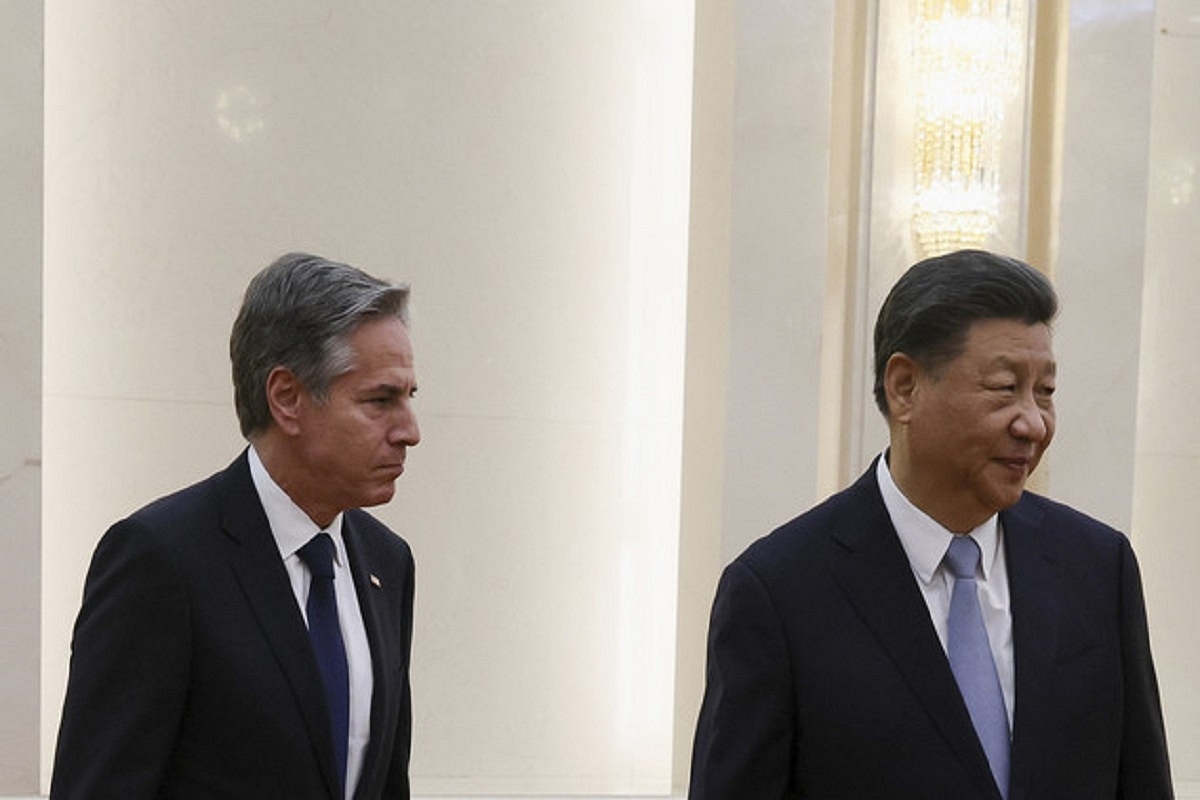World
China's Economic Slowdown May Usher Conflict In The Taiwan Strait: US Think Tank
- The task force emphasises that military strength will be a crucial factor in President Xi's deliberations about a potential invasion of Taiwan.
- It argues that the US can meaningfully influence Xi's cost-benefit analysis and deter an attack by adopting a military posture in the region that prepares for a Taiwan conflict and by enlisting the support of its allies.

The release of the report coincides with US Secretary of State Antony Blinken's recent meeting with President Xi in Beijing.
A United States think tank has issued a comprehensive report warning that the sluggish Chinese economy, coupled with President Xi Jinping's potential embrace of nationalism during his unprecedented third term, could escalate the likelihood of a military crisis in the Taiwan Strait.
The report, released by a bipartisan task force convened by the Council on Foreign Relations, covers various aspects of US-Taiwan relations, including politics, diplomacy, economy, and security.
It highlights the increasing fragility of the four-decade-old framework that the US has used to manage relations with Taiwan since establishing diplomatic ties with China in 1979.
The task force, co-chaired by former chairman of the Joint Chiefs of Staff Mike Mullen and former principal deputy director of National Intelligence Sue Gordon, warns that this reality, combined with Xi's discontent with the status quo and his determination to make progress toward unification, raises the risk of a conflict.
The report also suggests that China is entering a long-term economic slowdown due to factors such as an aging and shrinking population, the crackdown on innovative technology companies, and US export controls on advanced technology.
China's central bank recently lowered lending rates, signaling growing concerns about the country's economic outlook.
As China's economic growth slows, President Xi is increasingly turning to nationalism to justify the Chinese Communist Party (CCP)'s hold on power. The report warns that in the face of further economic downturn, Xi may use the Taiwan issue to rally support for the CCP and his personal rule.
As Xi approaches the end of his tenure and considers his legacy, the risk of a conflict over Taiwan is expected to increase.
The release of the report coincides with US Secretary of State Antony Blinken's recent meeting with President Xi in Beijing. While both sides agreed to maintain lines of communication, there are divergent views on the future of Taiwan, with China's top diplomat, Wang Yi, stating that Beijing has no room for compromise or concession regarding the island.
The report highlights a particularly worrisome scenario where China could impose aviation and customs control over civilian aircraft and cargo vessels heading to Taiwan, claiming jurisdiction over the waters and airspace surrounding the island.
This tactic could effectively blockade Taiwan, impeding the free flow of goods and damaging its economy. Any military disruption of such an operation by Taiwan could potentially lead to a military conflict, as reported by Asia Nikkei.
The task force emphasises that military strength will be a crucial factor in President Xi's deliberations about a potential invasion of Taiwan. It argues that the United States can meaningfully influence Xi's cost-benefit analysis and deter an attack by adopting a military posture in the region that prepares for a Taiwan conflict and by enlisting the support of its allies.
Among US allies, Japan is deemed the most critical country if the former decides to defend Taiwan. The report underscores the importance of US access to Japanese bases for swift deployment of fighter aircraft in a conflict scenario. It recommends regular and serious dialogues between the United States and its allies to establish expectations and facilitate smooth prior consultation during a crisis.
Additionally, the task force calls for greater clarity regarding the scope and scale of military assistance that Japan, Australia, and the Philippines are willing to provide in the event of Chinese aggression towards Taiwan. Such clarity would help define the role and mission of each country and pave the way for a more integrated war plan.
To counter China's alleged economic coercion, the report suggests that the United States form an Indo-Pacific economic coalition with Taiwan, Japan, South Korea, Australia, and the Philippines, representing about 35 per cent of the global economy.
The task force recommends identifying China's most vulnerable industries and applying sanctions that would exert maximum pressure on Beijing, coordinating actions among the coalition members.
Furthermore, the report proposes that the Biden administration conduct a country-by-country analysis of the economic impact of a crisis in the Taiwan Strait.
Support Swarajya's 50 Ground Reports Project & Sponsor A Story
Every general election Swarajya does a 50 ground reports project.
Aimed only at serious readers and those who appreciate the nuances of political undercurrents, the project provides a sense of India's electoral landscape. As you know, these reports are produced after considerable investment of travel, time and effort on the ground.
This time too we've kicked off the project in style and have covered over 30 constituencies already. If you're someone who appreciates such work and have enjoyed our coverage please consider sponsoring a ground report for just Rs 2999 to Rs 19,999 - it goes a long way in helping us produce more quality reportage.
You can also back this project by becoming a subscriber for as little as Rs 999 - so do click on this links and choose a plan that suits you and back us.
Click below to contribute.
Latest